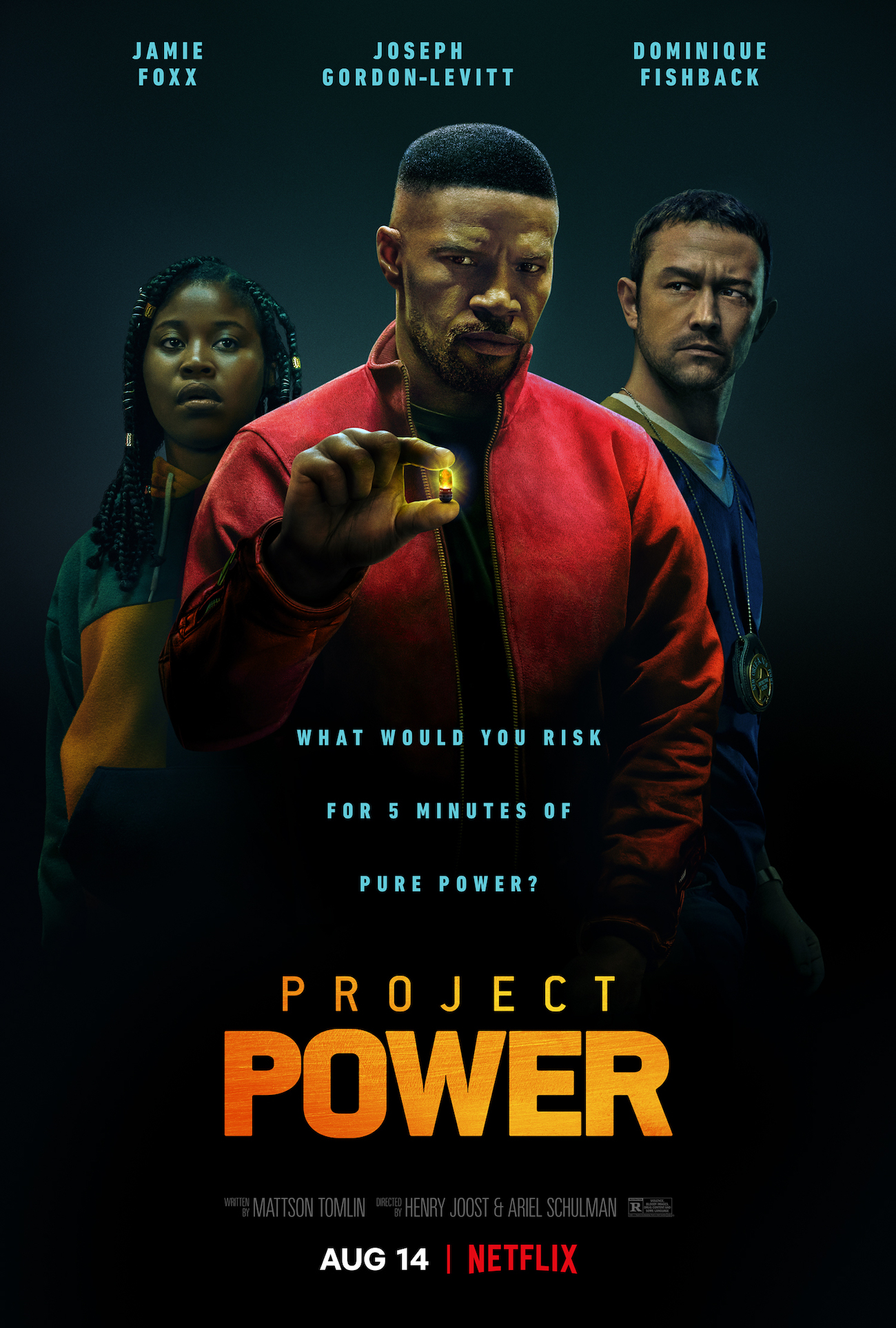‘Project Power’ Netflix Movie Review: A Drug Film With a Dose of Superpowers
The Netflix original Project Power, starring Jamie Foxx and Joseph Gordon-Levitt, is a drug ring movie with a sprinkling of superpower shenanigans. The film considers what would happen if a pill providing users with temporary superpowers hit the streets.
Unlike far-reaching superhero films would lead viewers to believe, superpowers do not create superheroes. Instead, they make super-capables, still possessing all the gray morality that comes from life under capitalism. The film hits a few high notes, often commenting on human nature, class divides, and power structures, albeit could benefit from showing rather than telling.

‘Project Power’ is slow to accelerate and a little typical despite an atypical premise
As is the case with many movies focusing on drug distribution, there’s a powerful, well-dressed white individual sitting at the top. As for the woman in charge, she has her league of extraordinary henchman and doesn’t get her hands dirty.
There’s a cop who, of course, is willing to die for his city. There’s a father whose gifted daughter was kidnapped. Can a couple of small-town folks and a clever girl defeat the baddies who outnumber them?
Despite the brief moments of superhuman combat, the film draws on crime drama tropes, resorting to an amalgamation of genre-fitting norms — the savior arc, the committed cop, the damsel in distress — to round out its story. Thus, the characters are narrative-driven, as opposed to the reverse. The characters lack substantial backstory and fail to become humans, remaining devices for the various themes the writers wish to convey.
Super-Soldier Serum doesn’t always make Captain America
Project Power confronts the truth, or what realists would presumably predict if superpower pills hit the market: those who controlled the world before would continue to control the world after. Those with power would maintain power, exploiting the less fortunate as a means to an end.
The film shows lower-class towns where the pill functions like any other drug on the street. Yet, it also portrays the illicit upper-class, who use money to exploit. Those who treat the pill not as a substance for personal use but as a gateway to significant global influence remain everpresent. In this realm, the film reaches its peak, providing a glimpse into the social commentary depths it dared to enter, yet failed to evaluate wholly.
‘Project Power’ needed to talk a little less, and show a little more
The film uses dialogue to capture its contemplative undertones. Rather than revealing the truth of society via a fleshed-out narrative, dialogic exchanges cue viewers into what they should be thinking.
Foxx’s character informs his young, Black female partner (Dominique Fishback) that she will have to surmount unfair hurdles just for existing. Yet, he explains inequality of life to a young woman who has already come to confront it, so who is he telling?
Foxx’s character reminds his young partner that their situation isn’t like Batman & Robin — that real-life isn’t a superhero flick. However, viewers shouldn’t need to be told the obvious. The life-threatening predicament should suffice, but it doesn’t.
Levitt’s character is incessantly preaching about “his city,” and his need to care about his people, for no one else will. The film gets so lost in telling the viewers what it wants them to see and feel — how to interpret its characters — that it rarely shows them via exposition. The film does not trust its audience to think independently. The various “grander” messages should be implanted into the narrative — as part of the fundamental context — not added as supplemental material.
While it’s fun to see what superpower someone will receive upon ingesting a pill, that excitement dies down after the first few times. And, as the fun tied to the fantasy element dissipates, it leaves behind a predictable drug movie that had the potential to comment on the drawbacks of capitalism, but lost itself in a little hypermasculinity and overstated chatter.


